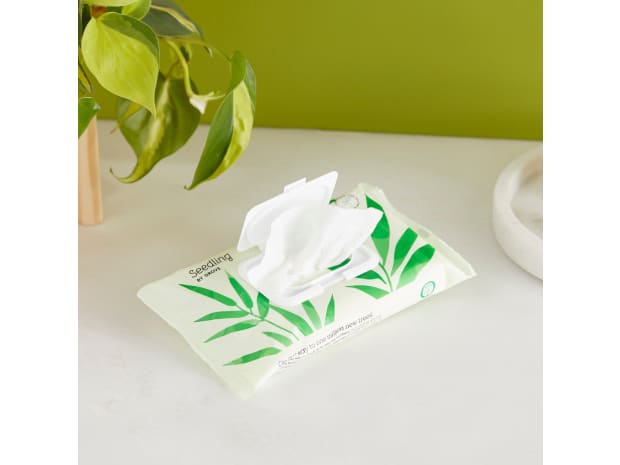
6 best natural cleaning & disinfectant wipes that actually work.
We've pulled the top 6 natural cleaning and disinfecting wipes determined by Grove members
Read More

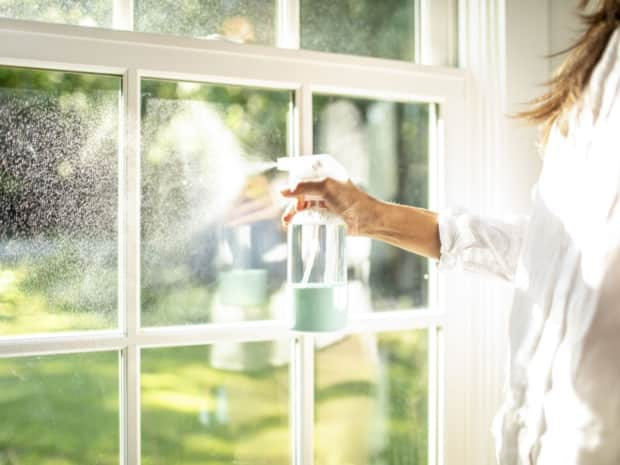
Last Updated: January 24, 2022
Cleaning is one of the best ways to protect your family from viruses, especially if someone’s been sick in your home already. We’ve got a quick checklist to help you disinfect your home after an illness.
We can all agree that being sick is the worst. Sneezing, coughing, dripping fluids out of any—and sometimes every—orifice.
If you’ve got someone in your household who’s sick, you want to do everything in your power to make sure no one else catches what they've got.
Cleaning is one of the best ways to protect you and your family from viruses, and we've got a quick and not-so-dirty checklist to help you disinfect your home after someone's been sick.
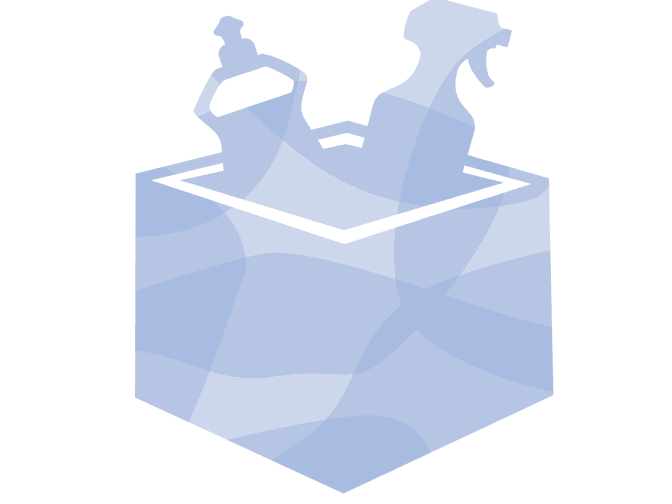
To clean your home during or after a sickness, you'll need a good disinfectant.
Bleach kills viruses like COVID-19 and the flu, but it can also cause nose, eye, and throat irritation. Vinegar is great for cleaning, but it doesn't disinfect and it isn't a match for viruses or cold germs. So what should you use?
Thymol, a plant-based ingredient with strong antiseptic and antimicrobial properties, is a powerful disinfectant that eliminates 99.99% of germs. It doesn't have the potentially negative side effects of bleach and the EPA has listed thymol as an effective disinfectant against SARS-Cov-2 (aka COVID-19).
The CDC says to clean high-touch surfaces regularly or after you've had visitors in your home. It's especially important to keep things clean if any of your family members are at high-risk for viruses like the flu or COVID-19.
High-touch surfaces are any areas of your home that get a lot of use, like doorknobs or fridge handles. Disinfect all surfaces once a day while your family member is sick, after the sick person has touched the area, or after the sick person has recovered to kill any remaining germs.
Get more tips and tricks to get your house its cleanest with our coronavirus cleaning and disinfecting guide and our household disinfecting guide.
Then follow along below for more in-depth guidance on how to get the germs gone and job done.
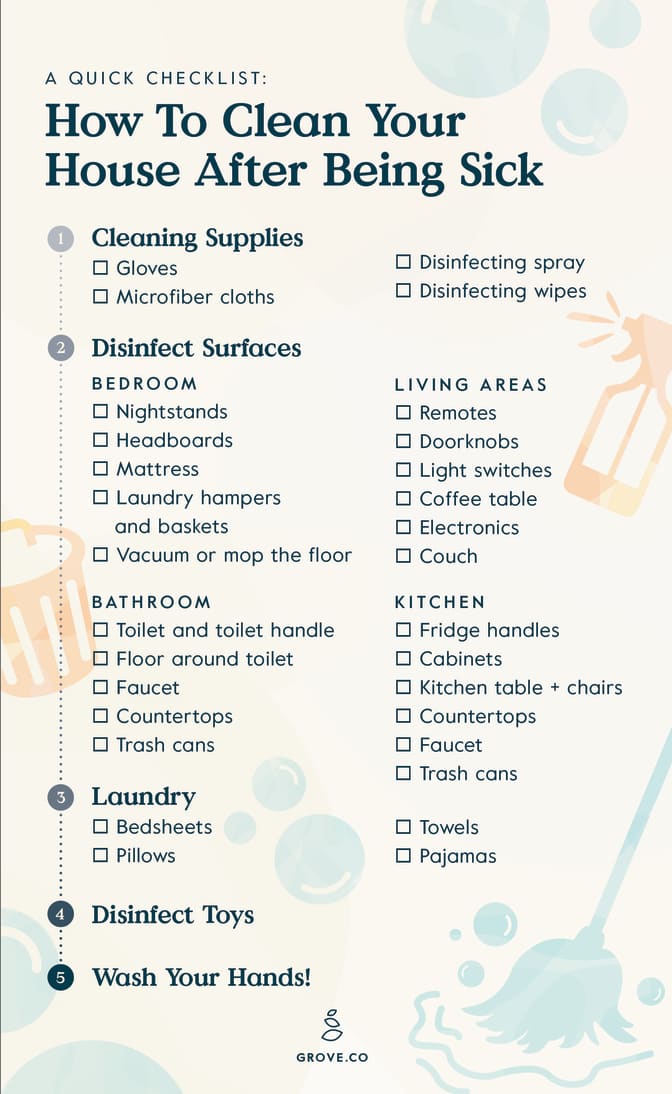
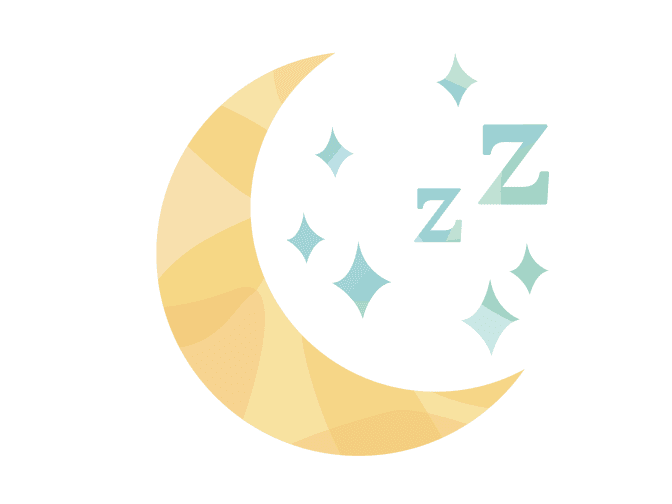
Bedrooms are hot spots for viruses and germs, especially if the sick person is spending most of their time in bed. After a person is sick, wash all bedsheets, pillowcases, and pajamas in hot water to prevent reinfection.
Disinfect your mattress with a disinfectant spray to kill any germs that hope to hitch a ride on you or your family members.
To give your mattress a deep clean, check out our mattress cleaning guide.
Most pillows, including down and feather pillows, can be thrown in your washer and cleaned in hot water to kill off any germs.
If you can't wash your pillow, don't worry—tumble drying on high heat for at least 30 minutes is enough to kill most germs.
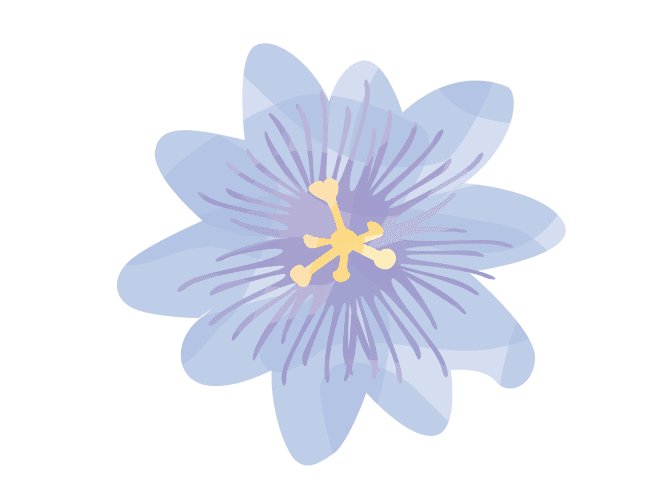
Limiting a sick person to one room of the house is hard, and who among us doesn't love to curl up on the couch and watch TV when we're not feeling good? Protect common areas of the home, like the living room, by cleaning it frequently during an illness. Focus on the high-touch areas listed below.
If the sick person is convalescing on the couch, lay out sheets or blankets that are easy to remove and wash each day.
You can also use a disinfectant spray on your couch to kill germs after a sick person has been lying on it.
Then, read our couch cleaning guide for three quick and easy steps to fully clean your sofa.
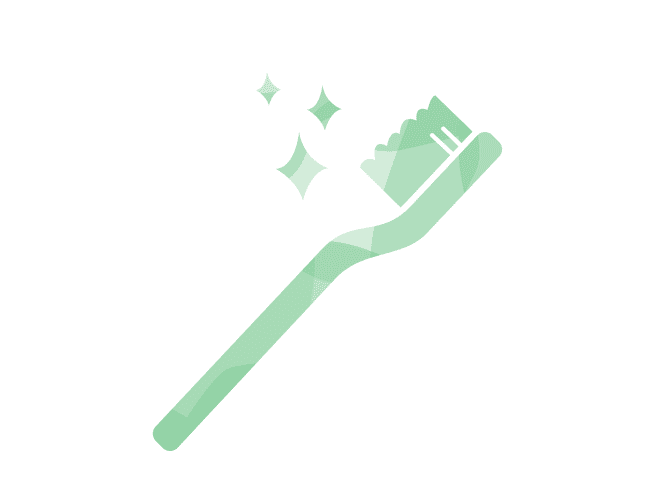
If possible, it's a good idea to use a different bathroom from a person who is actively sick. Wash towels and bath rugs in hot water and use a high heat setting in the dryer to kill germs.
Grove Tip
Cold and flu germs can stick to fabrics, so consider switching to eco-friendly bamboo paper towels while there is sickness in your house to avoid contaminating hand towels.
We've got some eco-friendly paper towel rec's that are great for times of illness and easy on the environment, too.
So, how do you clean a toothbrush after an illness? The answer is simple: You don't!
Once a sick person is feeling well again, toss their toothbrush and get a new one. Make sure you disinfect the toothbrush holder, too.
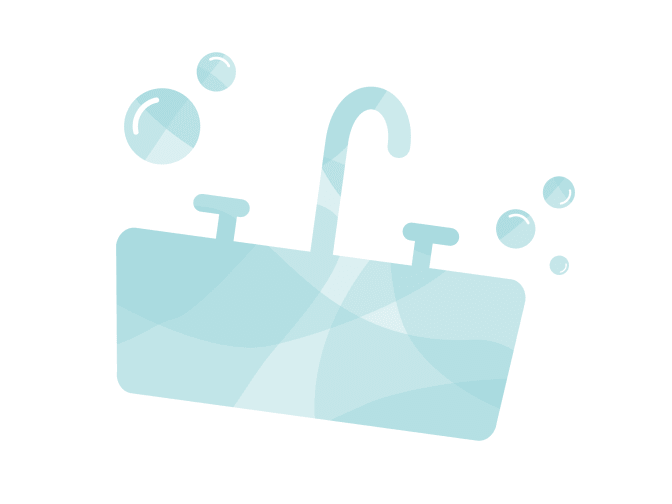
Keep sick people out of the kitchen, and don't let them prepare food for others. Wash all utensils the sick person has used in high heat and use a disinfectant solution if you're washing them by hand.
Cleaning your trash can is important anytime, but it's especially important after there's been an illness in the house.
We've got tips to disinfect your trash can and eradicate any lingering germs and bacteria.
Keep your dishes free from germs and use eco-friendly disposable plates and silverware while your family member recovers from illness.
Here are a few of our eco-friendly favorites made from sustainable bamboo—and they are even compostable!
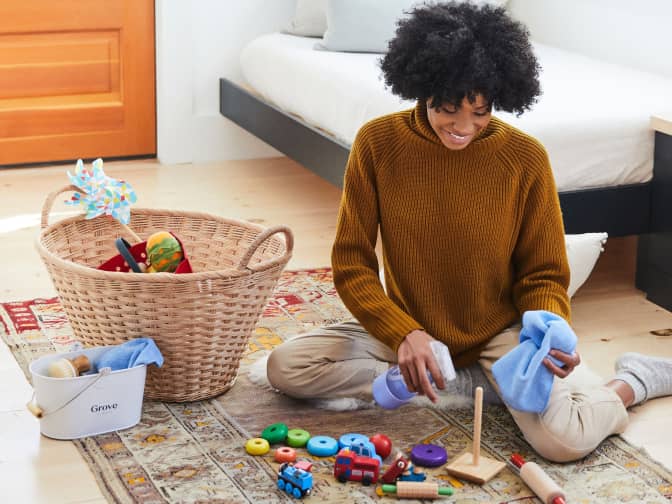
If your little one caught a bug, you'll want to disinfect their toys after they feel better to eliminate any viruses or bacteria.
Since kids are notorious for putting anything and everything in their mouths, avoid using sprays or wipes to disinfect their toys. Boil 'em instead!
Read our guide to disinfecting baby toys for info on safely boiling your kiddo's favorite toys.
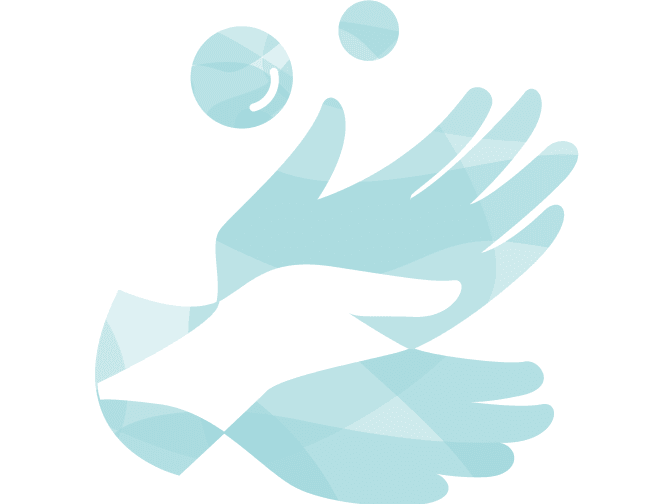
Washing your hands is one of the best ways to prevent you and your family from getting sick or getting sick again.
After disinfecting, the CDC recommends washing your hands for 20 seconds with soap and water. Other important times to wash your hands are before and after eating, before and after caring for someone who is sick, and after going to the bathroom.
Then, read more on natural hand soaps (and how they work compared to antibacterial soaps) as well as the differences between hand soap and hand sanitizer.

We've pulled the top 6 natural cleaning and disinfecting wipes determined by Grove members

The editors at Grove found the germiest household items that most people forget to clean.
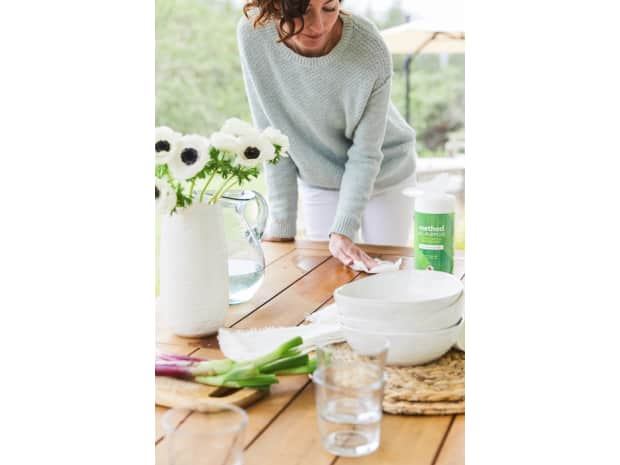
Tackle seldom-cleaned crevices and other spring cleaning must-dos with our handy checklist.

Thymol is a plant-based ingredient used in natural disinfectants. We break down what it is and how it kills viruses.